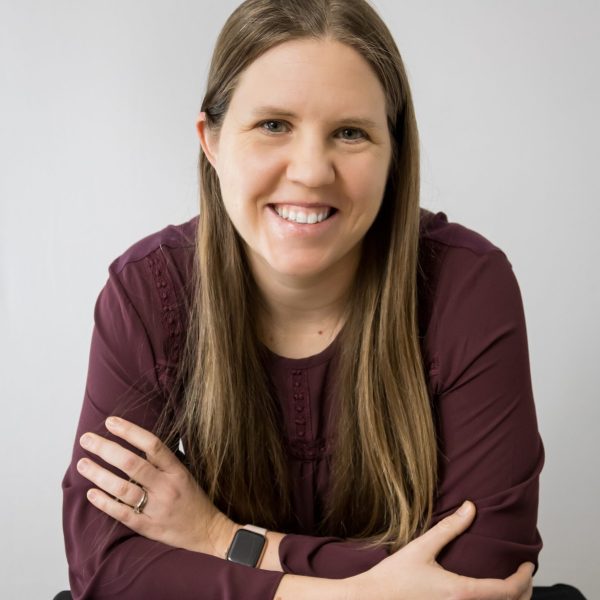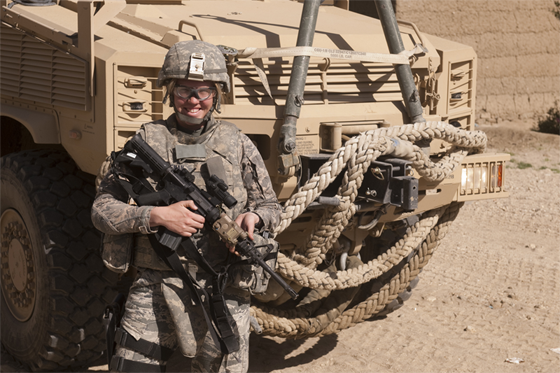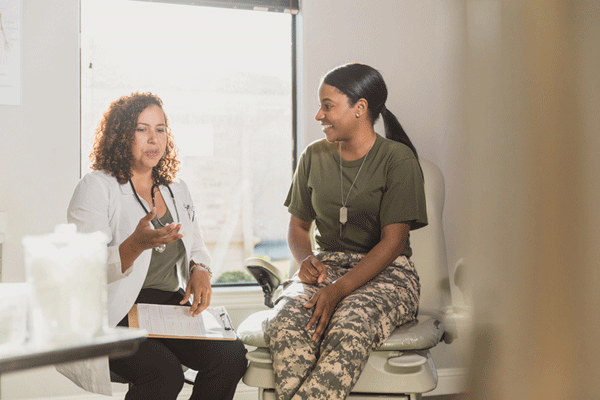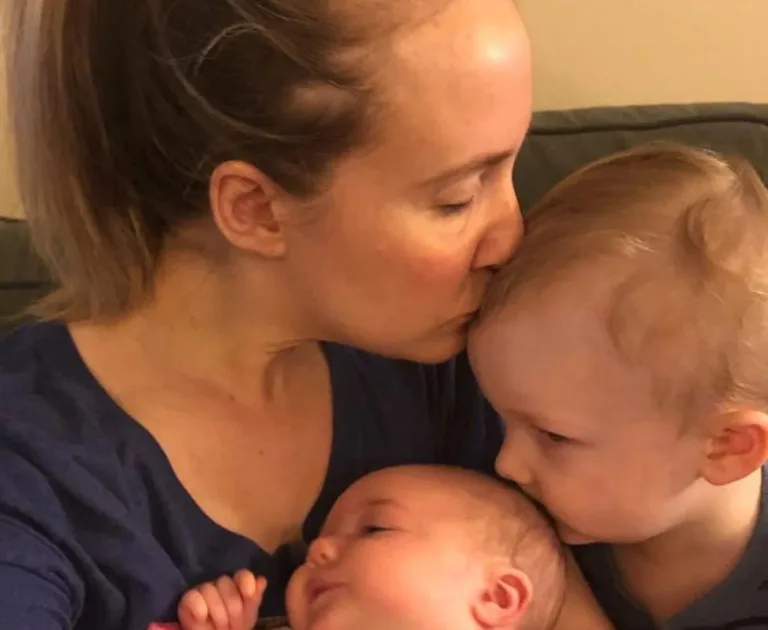As told to Nicole Audrey Spector
In Afghanistan, the men call us broken women. We’re the women who are married but don’t have children. They think that something must be wrong with us if we’re young, believed to be fertile and married off yet not pregnant within the first year of marriage.
And it’s never the husband’s fault. It’s always on the woman.
So there I was, a so-called “broken” 25-year-old woman trying to help rebuild a broken country with the rest of the U.S. troops. As a female officer of the Air Force in 2010 (six years before the military lifted the ban against women in combat), I couldn’t serve in the Infantry unit, but I was running around in convoys attached to an Infantry unit anyway. They needed civil engineers, and that’s what I was.
Every few days, we went on missions to help reconstruct the sites in villages in Kapisa, east of the U.S. base of Bagram Airfield. And I was paired with another civil engineer, the only other woman on all the Air Force–led PRTs that held that role. I think life would have been lonelier had I been paired with a man; I really needed the friendship and vulnerability that comes with working with another woman. But one of the challenges that both I and my female coworker faced were the lies people from our team spread about us. Like our lack of work ethic — or who we might be sleeping with.
Other women could be gossipy, but the men could be bad too. The twisted irony is that the men were supposed to protect the women. The very person you were expected to trust on these potentially dangerous off-base missions was the same person who could betray you by lying about your work performance. In a war zone, where tensions are already heightened, this can really mess with your mental health — perhaps even more so than it would if you were back home.
Then, one day, I came across a seemingly ordinary problem that ended up being an extra source of stress in an already highly stressful environment where you were constantly worried about being shot at by the Taliban: I realized I was almost out of birth control.
I wasn’t sexually active when deployed, but I didn’t want to take a chance and mess around with my hormones by going on and off contraception.
Back in the States, I would just call my pharmacy or doctor and be squared away in a day at most. But in Afghanistan, my only option was to go to the main base in Bagram and meet with the doctors there.

The doctors (male, by the way) gave me a month’s refill of my birth control, but said that for any more I would need to figure it out with my home station. One doctor told me he couldn’t help me further because I was in the Air Force and he was an Army doctor. Would it have meant more paperwork? Probably. But so what?
Writing me a prescription for birth control that I had been on for years seemed like a pretty simple task, but I guess it wasn’t, and I had no choice but to ask my friend back home to send me a six-month supply by mail.
At the time, this all struck me as just a minor inconvenience, but years later I wonder if there wasn’t something deeper going on. Was there some underlying suspicion that I was having sexual relations while on duty?
In the end, it doesn’t really matter what the doctors on base were thinking. What matters is what they weren’t thinking. They weren’t thinking about my rights to safe and accessible contraception — a major contradiction when considering that there was no shortage of condoms available to grab at the clinic at our FOB.
And they weren’t thinking about my health needs. Going off birth control can cause a number of symptoms, including irregular periods or even not having a period. These concerns were clearly not taken into consideration and no one on base was willing to change that.
I know that some things have improved for women in the military since 2010, but I know there is still significant work to be done in order for women to truly thrive in the military and have access to the medical care that they need. I am doing my best to play a role in making that happen.
One of the steps I took was to write a book called A Girl’s Guide to Military Service. I also spearhead a group of women veterans who are willing to help answer questions that young women may have about the military. Additionally, I am creating a mentorship program that pairs new members with seasoned women vets.
I love and deeply believe in the military — but there are still some aspects of the system that are broken for women. But they’re not beyond repair. And together we can help rebuild.















